Christina Hu (胡若涵) was in fifth grade when she and her mom immigrated to the US in 1991. More than two decades later, the amateur documentarian still gets choked up when she talks about the muse of her recent film projects — Taiwan.
“I don’t want to be contrived, like this is the meaning of my life,” Hu said.
But for the 37-year-old valuation specialist of a hedge fund administrator, the thought of her homeland strikes at something deep, Hu said.
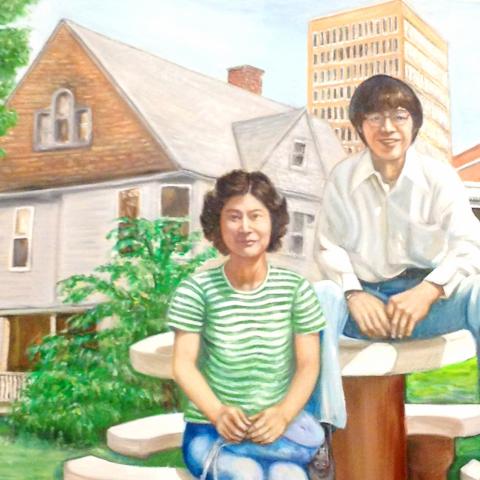
Photo courtesy of Christina Hu
“It’s pretty much true for all immigrants, I think, that when you know your life can be so different, and especially for Taiwanese, knowing that you are who you are today because you left Taiwan, but then Taiwan never left you,” said Hu, who grew up in Virginia Beach, Virginia.
Hu’s experiences as a Congress-Bundestag scholar in Germany, a Peace Corps volunteer in Ukraine during the “Orange Revolution” and a graduate of the Harvard Kennedy School all led up to her interest in making films about Taiwan, she said.
Hu’s most recent documentary, which she discussed in a March 24 interview on a Brooklyn community television network, centers on a Taiwanese Canadian named Columbus Leo (羅益世). In 1989, Leo was arrested when he returned to Taiwan and was charged with sedition, according to the film.
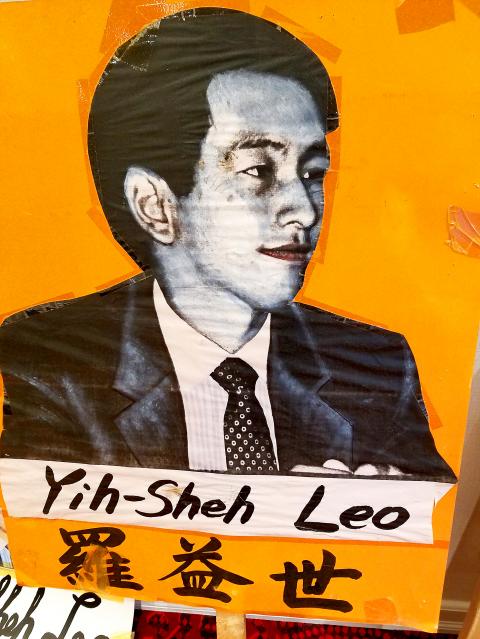
Photo courtesy of Christina Hu
A conference organizer for the World Federation of Taiwanese Associations (世台會), a group promoting Taiwanese independence, Leo was among those believed to be blacklisted by the Chinese National Party (KMT) government during martial law, which ended in 1987. Just how many overseas political dissidents made that list remains unclear.
“The freedom we enjoy today in Taiwan is a credit to them,” Hu said. “And it’s something that’s not being told enough around the world.”
A self-described history buff, Hu nurtured her interest in filmmaking by enrolling in classes at BRIC, a nonprofit arts and media organization in Brooklyn, New York, where she lives.
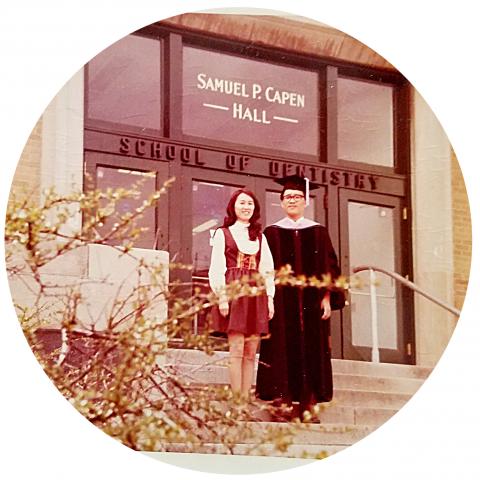
Photo courtesy of Christina Hu
Her first film, between 2014 and 2015, focused on Jewish women who fled Ukraine with their families during World War II, Hu said. Their evacuation came after the Nazi invasion of the Soviet Union, of which Ukraine was a part.
But Hu also knew she wanted to make a documentary about Taiwanese history and identity. Taiwan’s blacklist provided that fodder.
Thanks to a Taiwanese music group Blacklist Studio (黑名單工作室), the word “blacklist” was already etched in Hu’s mind as a child living in Taiwan, she said. Hu, however, didn’t know anyone who was blacklisted.
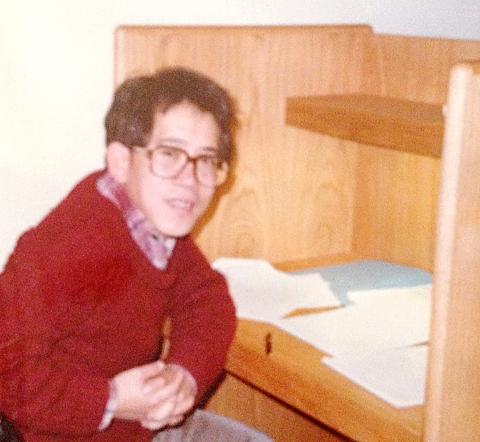
Photo courtesy of Christina Hu
“My family’s very apolitical,” she said. “I think it’s because they learned that it was dangerous ... to talk about politics.”
Looking to help with her project, a Harvard friend introduced Hu to Taiwan activist Jenny Wang (汪采羿) in New York. Wang secured interviews for Hu with three Taiwanese Americans who had been blacklisted as graduate students in the US, Hu said.
In the first installment of Hu’s documentary, those men — Lai Hong-tien (賴弘典), Patrick Huang (黃再添) and Mark Kao (高龍榮) — discussed how they were allegedly spied on at school functions by KMT agents and how some had difficulty returning home.

Photo courtesy of Christina Hu
Hu said the 10-minute film sparked interest among members of the mostly African-American audience unfamiliar with the Taiwan’s history of political persecution during martial law.
“The universal feedback was, I learned so much,” she said. “To me, that was enough for the first film.”
Hu built on her success with a second installment of “Blacklist,” a six-minute film that looks at the arrest of Leo, the world Federation of Taiwanese Associations conference organizer.
In the late 1980s, the group held its conferences in Taiwan to protest the government’s keeping a blacklist of political dissidents even though martial law had already ended.
Leo successfully entered Taiwan twice, according to the documentary, but wasn’t so lucky the third time around. After being arrested, Leo was moved to solitary confinement while waiting for the high court to hear his case. He received support from around the world, his wife says in the film, and eventually the charges were dropped.
“He really believed that we all have to do something,” said Hu, who interviewed Leo in October.
Hu is now formulating ideas for a third film to focus on Taiwan’s exclusion from the UN. Once a year, Taiwanese Americans gather in Manhattan to rally for a spot in the UN, which gave Taiwan’s seat to China in 1971.
Armed with a camera, Hu attended last year’s protest and filmed the event.
“I feel like a good documentary film is one without a pure agenda,” she said. “I’m trying to be as neutral as possible. But I feel it’s also incumbent of me to relay the feeling of it.”
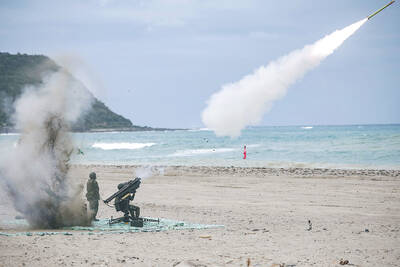
In late October of 1873 the government of Japan decided against sending a military expedition to Korea to force that nation to open trade relations. Across the government supporters of the expedition resigned immediately. The spectacle of revolt by disaffected samurai began to loom over Japanese politics. In January of 1874 disaffected samurai attacked a senior minister in Tokyo. A month later, a group of pro-Korea expedition and anti-foreign elements from Saga prefecture in Kyushu revolted, driven in part by high food prices stemming from poor harvests. Their leader, according to Edward Drea’s classic Japan’s Imperial Army, was a samurai

The following three paragraphs are just some of what the local Chinese-language press is reporting on breathlessly and following every twist and turn with the eagerness of a soap opera fan. For many English-language readers, it probably comes across as incomprehensibly opaque, so bear with me briefly dear reader: To the surprise of many, former pop singer and Democratic Progressive Party (DPP) ex-lawmaker Yu Tien (余天) of the Taiwan Normal Country Promotion Association (TNCPA) at the last minute dropped out of the running for committee chair of the DPP’s New Taipei City chapter, paving the way for DPP legislator Su

It’s hard to know where to begin with Mark Tovell’s Taiwan: Roads Above the Clouds. Having published a travelogue myself, as well as having contributed to several guidebooks, at first glance Tovell’s book appears to inhabit a middle ground — the kind of hard-to-sell nowheresville publishers detest. Leaf through the pages and you’ll find them suffuse with the purple prose best associated with travel literature: “When the sun is low on a warm, clear morning, and with the heat already rising, we stand at the riverside bike path leading south from Sanxia’s old cobble streets.” Hardly the stuff of your

Located down a sideroad in old Wanhua District (萬華區), Waley Art (水谷藝術) has an established reputation for curating some of the more provocative indie art exhibitions in Taipei. And this month is no exception. Beyond the innocuous facade of a shophouse, the full three stories of the gallery space (including the basement) have been taken over by photographs, installation videos and abstract images courtesy of two creatives who hail from the opposite ends of the earth, Taiwan’s Hsu Yi-ting (許懿婷) and Germany’s Benjamin Janzen. “In 2019, I had an art residency in Europe,” Hsu says. “I met Benjamin in the lobby